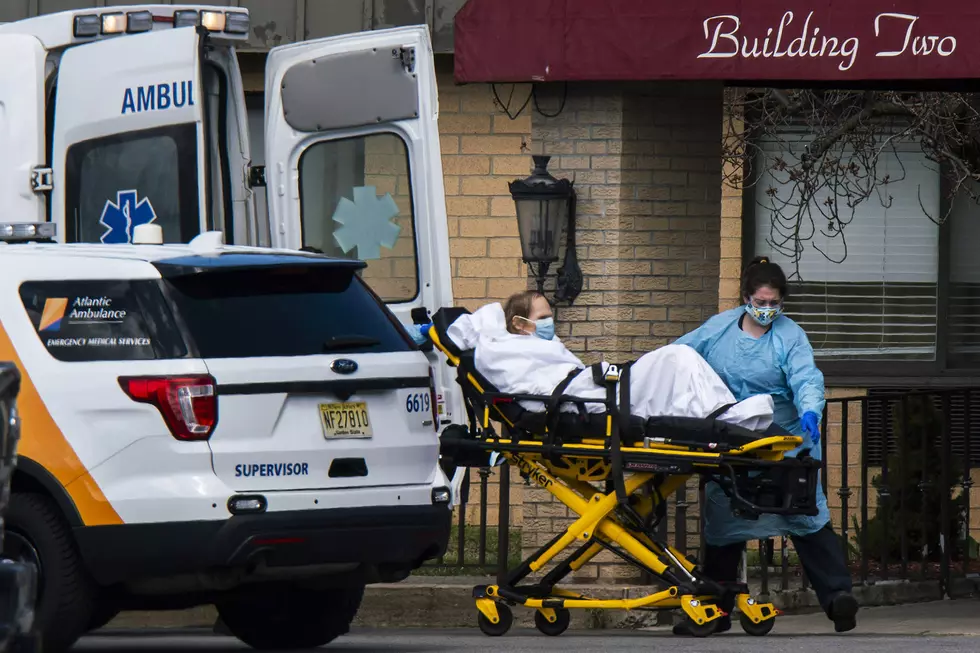
‘Stand by what we did': NJ defends COVID cases in nursing homes
TRENTON – Health Commissioner Judy Persichilli again defended how the state handled novel coronavirus infections among residents of long-term care facilities at a Wednesday budget hearing, mostly at the behest of Democratic lawmakers.

The topic remains a potent issue, as the state says lab tests have confirmed 8,018 deaths associated with long-term care facilities – around 7,865 residents and 143 staff members. The problem was very acute last spring, driving New Jersey’s COVID death rate to what remains the nation’s highest.
Persichilli said the Department of Health’s March 31 directive to long-term care facility administrators on requirements for allowing residents to return to their homes “has been repeatedly misrepresented.”
“We were very clear that the facilities could only re-admit residents if they could separate them from other residents, maintain proper infection control and had sufficient PPE and staffing. But, most importantly, they needed to tell us if they could not meet these requirements,” Persichilli said.
“Within 24 hours, 90 facilities let me know. Within a week, 200 facilities,” she said. “And as I pointed out, in April on any given day, 254 of our nursing homes were not accepting patients. In May, 238. So, some people understood the directive.”
Persichilli said the department would receive late-night calls from administrators having difficulty caring for patients.
“We said we would make alternative arrangements and we did,” she said. “We contracted with three different long-term care systems for COVID-only facilities and more than 3,000 patients went to those facilities in April, May, and June.”
In all, there have been almost 1,400 outbreaks at long-term care facilities, including 233 outbreaks currently active. There have been 54,653 confirmed COVID-19 cases, residents and staff combined.
Persichilli addressed it at length in her opening remarks. Assemblyman John Burzichelli, D-Gloucester, asked if her answer “is clear enough that people listening to this will be able to understand that the political play that’s taking place attacking this state, this governor, your department.” He said there is a narrative that Gov. Phil Murphy forced people into nursing homes ill-prepared to care for them.
“Totally false,” Persichilli said. “Totally false. I stand by what we did.”
Burzichelli said the federal government and then-President Donald Trump didn’t promptly share with the states what they knew about airborne and asymptomatic spread of the coronavirus.
“People want to rewrite history. They want to gloss over what happened. But decisions are made in the context of when things were known and when things were happening,” Burzichelli said.
“If we knew that asymptomatic spread was the way that this virus was being transmitted, we would have locked down not only nursing homes,” Persichilli said. “We would have locked down nursing homes, schools, activities. All of the things we hate, we would have done sooner, and maybe we wouldn’t be dealing with them today.”

Assemblyman Hal Wirths, R-Sussex, said the state was slow to respond to COVID-19 deaths at the Andover Subacute and Rehabilitation Center, where a year ago 17 bodies were discovered in a makeshift morgue, and still seems quick to point the finger at other culprits for problems.
“My ultimate question would be if it’s not the DOH’s fault, who is being held responsible or who is at fault for the 8,000 deaths?” Wirths said. “Who is at fault at the end of the day? Somebody has to be responsible for those lost lives.”
“I’m truly not being glib. The virus is at fault,” Persichilli said. “However, however, we are dealing in long-term care with an industry that has lacked resiliency for years.”
Ten times drunk driving changed New Jersey Lives Forever
More From Beach Radio










